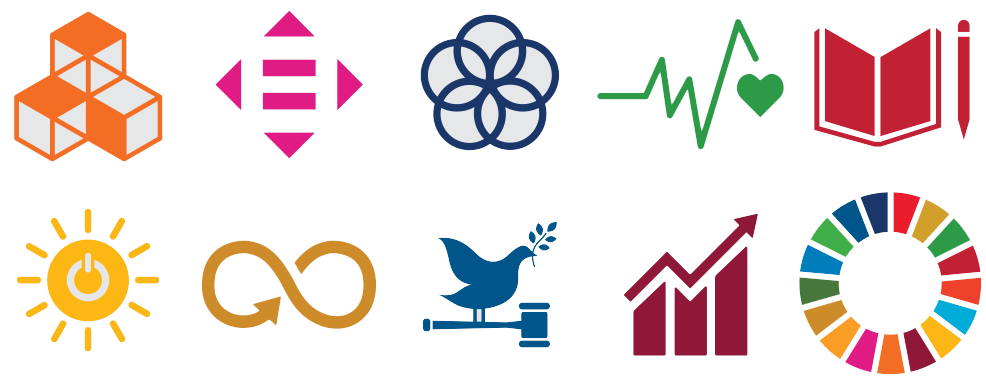 Decent Work and Economic Growth
Decent Work and Economic Growth
“Promote sustained, inclusive and sustainable economic growth, full and productive employment and decent work for all.”
Key targets:
8.2 Achieve higher levels of economic productivity through diversification, technological upgrading, and innovation, including through a focus on high-value added and labour-intensive sectors.
8.3 Promote development-oriented policies that support productive activities, decent job creation, entrepreneurship, creativity and innovation, and encourage the formalisation and growth of micro-, small- and medium-sized enterprises, including through access to financial services.
8.5 By 2030, achieve full and productive employment and decent work for all women and men, including for young people and persons with disabilities, and equal pay for work of equal value.
8.6 By 2020, substantially reduce the proportion of youth not in employment, education or training.
8.10 Strengthen the capacity of domestic financial institutions to encourage and expand access to banking, insurance and financial services for all.
Our contribution:
Provide decent work within Safaricom and its broader ecosystem, including enforcing effective health and safety practices both internally and by suppliers while at the same time contributing to the local and national economy through innovative solutions to increase employment and facilitate economic activity amongst suppliers and clients.
Projects:
- We sustained 192 747 jobs directly and indirectly through our operations, including the livelihoods of 173 259 M-PESA agents and 440 dealers.
- Through the Safaricom Foundation Wezesha programme, we trained 1 883 youth on digital skills and jobs and 826 trainees secured work afterwards.
- 33 000 youth empowered through our Blaze entrepreneurship skills initiative and Chapa Dimba na Safaricom football talent exposure camp.
- Digifarm is an integrated agriculture platform that helps agribusiness and smallholder farmers access credit, information and sell their farm produce. It has 430 000 active users with 12 037 farmers using the service end-to-end and 188 350 farmers accessing learning content. KSh 348 million worth of inputs have been redeemed via the platform to date.
 Customer first
Customer first Relevant products
Relevant products Operational excellence
Operational excellence



 Good Health and Well-being
Good Health and Well-being Quality Education
Quality Education Affordable and Clean Energy
Affordable and Clean Energy Decent Work and Economic Growth
Decent Work and Economic Growth Industry, Innovation and Infrastructure
Industry, Innovation and Infrastructure Reducing Inequality
Reducing Inequality Responsible Consumption and Production
Responsible Consumption and Production Peace, Justice and Strong Institutions
Peace, Justice and Strong Institutions Partnerships for the Goals
Partnerships for the Goals